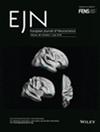How Might a ‘Philosopher's Toolkit’ Help Advance Neuroscience? Let's Ask Some Neuroscientists
Abstract
In the terms adopted by the editors of this special issue concerning how a ‘philosopher's toolkit’ might contribute to progress in neuroscience, this paper reports posing that question to several neuroscientists, all with a track record of successfully interacting with philosophers. These discussions took the form of structured interviews following the methods of Barwich. The results highlight a number of issues that these neuroscientists think philosophers can help them solve. Different views emerged about what a ‘philosopher's toolkit’ consists of; but each of these neuroscientists saw some important roles that philosophers can play within neuroscience itself. Transcripts of these interviews and the accompanying analyses reveal to philosophers that some prominent neuroscientists welcome their contributions, to central outstanding questions within their specific research fields and to more general concerns that confront scientists beyond those specific to neuroscience. These discussions and analyses based upon them should be welcome to philosophers of science-in-practice, especially to a subset recently dubbed ‘philosophers-in-science’. They also reveal to neuroscientists who are less familiar with interacting professionally with philosophers a glimpse of what some of their colleagues find potentially valuable about such interactions.

 求助内容:
求助内容: 应助结果提醒方式:
应助结果提醒方式:


